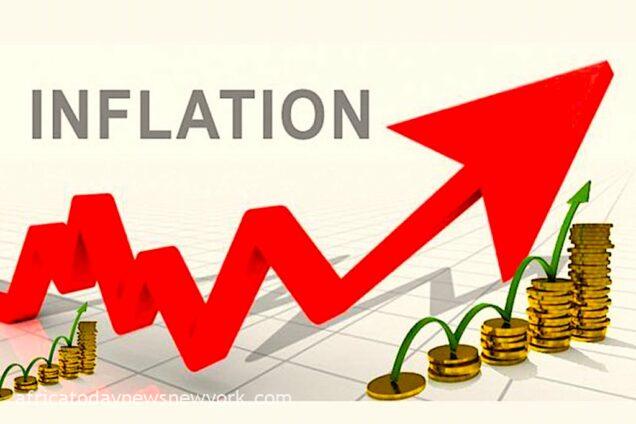The rising trend of inflation in Africa’s most populous country has continued unabated as it on September 2023 hit an all-time high of 26.72 per cent relative to the August 2023 headline inflation rate which was 25.80 per cent.
In a statement, the Statistician-General, National Bureau of Statistics (NBS), Prince Semiu Adeyemi Adeniran, said that the September 2023 headline inflation rate showed an increase of 0.92 per cent points when compared to the August 2023 headline inflation rate.
In a similar vein, the headline inflation rate was 5.94% points higher year over year than the (20.77%) rate that was registered in September 2022.
The SG claims that the increase in the headline index for September 2023 was caused by an increase in a few items in the divisional level basket of goods and services.
“These increases were observed in food and non-alcoholic beverages (13.84 per cent), housing, water, electricity, gas and other fuel (4.47 per cent); clothing and footwear (2.04 per cent), transport (1.74 per cent), furnishings and household equipment and maintenance (1.34 per cent), education (1.05 per cent) and health (0.80 per cent).
Read Also: Zimbabweans Voters Head To The Polls Amid Surging Inflation
Others are miscellaneous goods and services (0.44 per cent), restaurants and hotels (0.32 per cent), alcoholic beverages, tobacco and kola (0.29 per cent), recreation and culture (0.18 per cent) and communication (0.1 per cent).
Likewise, on a month-over-month basis, the headline inflation rate in September 2023 stood at 2.10 per cent, which shows that the average price level decreased by 1.08 per cent when compared to the rate recorded in August 2023 (3.18 per cent).
‘The percentage change in the average Consumer Price Index (CPI) for the twelve months ending September 2023 over the average of the CPI for the previous corresponding twelve-month period was 22.90 per cent, showing a 5.47 per cent increase compared to 17.43 per cent recorded in September 2022,’ he said.
According to SG, the food sub-index for September 2023 increased to 30.64 per cent on a year-on-year basis, which was 7.30 per cent points higher compared to the rate recorded in September 2022 (23.34 per cent).
The rise in food inflation on a year-on-year basis, Adeniran noted, was attributed to increases in prices of oil & fat, bread & cereals, potatoes, yam & other tubers, fish, fruit, meat, vegetables and milk, cheese, and eggs.
‘However, on a month-on-month basis, the food inflation rate in September 2023 was 2.45 per cent. This was 1.41 per cent lower compared to the rate recorded in August 2023 (3.87 per cent). The decline in food inflation was caused by a decrease in prices of potatoes, yams and other tubers, bread and cereals, fruits, and fish.
The average annual rate of food inflation for the twelve months ending September 2023 over the previous twelve-month average was 25.65 per cent, which was a 6.29 per cent point increase from the average annual rate of change recorded in September 2022 (19.36 per cent).
‘Core inflation is all items less volatile farm produces and Petroleum Motor Spirit (PMS). The exclusion of the PMS is due to the deregulation of the commodity by removal of subsidy. The core inflation rate stood at 21.84 per cent in September 2023 on a year-on-year basis. This shows a rise of 4.35 per cent when compared to the 17.49 per cent recorded in September 2022. The highest increases were recorded in prices of passenger transport by air, passenger transport by road, passenger transport by air, medical services, maintenance, and repair of personal transport equipment.
‘On a month-on-month basis, the core Inflation rate in the same way also increased by 2.22 per cent in September 2023. Which is up by 0.05 per cent compared to 2.18 per cent in August 2022.’
The average twelve-month annual inflation rate ending August 2023 over the previous twelve-month average stood at 19.55 per cent in September 2023; this was 4.48 per cent points higher than the 15.07 per cent recorded in September 2022” the SG further explained
Meanwhile, the urban consumer’s inflation rate on a year-on-year basis stood at 28.68 per cent for September 2023. This, NBS said, shows a 7.43 per cent point higher compared to the 21.25 per cent recorded in the corresponding month in 2022.
